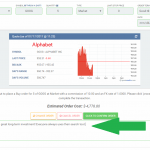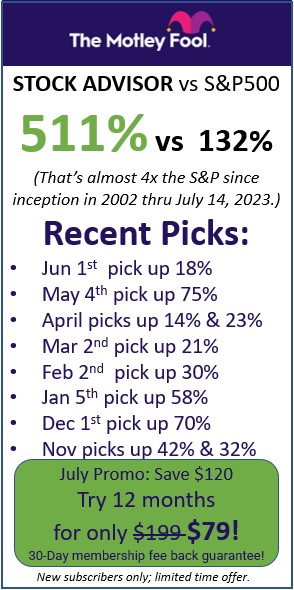The goal of a smart investor should be to build a diversified portfolio of stocks and bonds with low fees and the Exchange Traded Funds (ETFs) offer seven advantages over mutual funds:
- Lower cost
ETFs have lower expenses than low-cost indexed mutual funds. The Barclays i-shares S&P 500 ETF charges 0.09% a year in fees, compared to about double that for the Vanguard 500 Index Mutual Fund. A portfolio of index mutual funds costs about 18% less in annual expenses using ETFs than if we use a Vanguard index funds. With indexed mutual funds, you are pretty much locked into a family of products. If you want to avoid transaction fees, you have to have a Vanguard account. But having your portfolio with a single fund locks you to that one provider’s funds. It prevents you from shopping for the least cost funds. - Greater tax efficiency
ETFs are better in terms of tax treatement than mutual funds. Mutual Funds make regular capital gains distributions. Therefore investors who hold them in taxable accounts (as opposed to retirement accounts) will have to pay tax bills on the distributions. In contrast, index ETFs generally make minimal or no capital gains distributions to help their investors avoid this tax. The larger the mutual fund and the more it trades hands, the smaller the capital gains. - Better tax management
Better and easier tax management is possible with ETFs than index mutual funds. Tax treatment are the key advantage that results in financial differences, particularly for large accounts. If you buy ETFs in an account that tracks tax lots, you can sell ETFs with the highest cost-basis, thereby minizing taxable gains. (You can make charitable gifts of appreciated stock funds with the lowest cost basis.) Your holdings in a mutual funds are often reported and sold using average purchase price. This reduces your ability to realize tax losses. - Easier asset allocation
You can manage your asset allocation more easily with ETFs. You can buy a basket of ETFs – stock, bond and REIT indexes – in a single online brokerage account, see all your assets in one place, and track your asset allocation. Mutual funds from Vanguard, for example, don’t appear in the Schwab supermarket. That means that if you want to use mutual funds to allocate your funds among different asset classes, you’ll likely need multiple accounts. You will not be able to track your asset allocation in one place, and rebalancing assets. - Easier portfolio rebalancing
You can rebalance your portfolio easier with ETFs. You can use limit orders to buy and sell funds at preset prices. The ability to manage taxes better with ETFs means that rebalancing becomes an option in taxable accounts. With mutual funds held in a taxable account, you’re often forced to “buy and hold” without rebalancing because of the tax implications of rebalancing. - No fraud!
ETF transactions are easier to track and far harder to manipulate. ETFs and closed-end funds are baskets of stocks traded on exchanges, where the bid-offer spread is publicly available. In contrast, mutual funds are purchased at set prices after the US stock market closes, creating the risk of legal or illegal arbitrage. This issue is particularly problematic for International mutual funds. The tranparency and trading advantages effect both exchange traded mutual funds and closed-end fund versus regular or open-end mutual funds. - You can short ETFs
Shorting ETFs is available and has sound uses in some cases for experienced investors.
Click Here to see all Beginner ETF Articles
 Diversification
Diversification How to Use the Relative Strength Index in Your Online Trading
How to Use the Relative Strength Index in Your Online Trading Trade Notes – Justify Your Trades
Trade Notes – Justify Your Trades